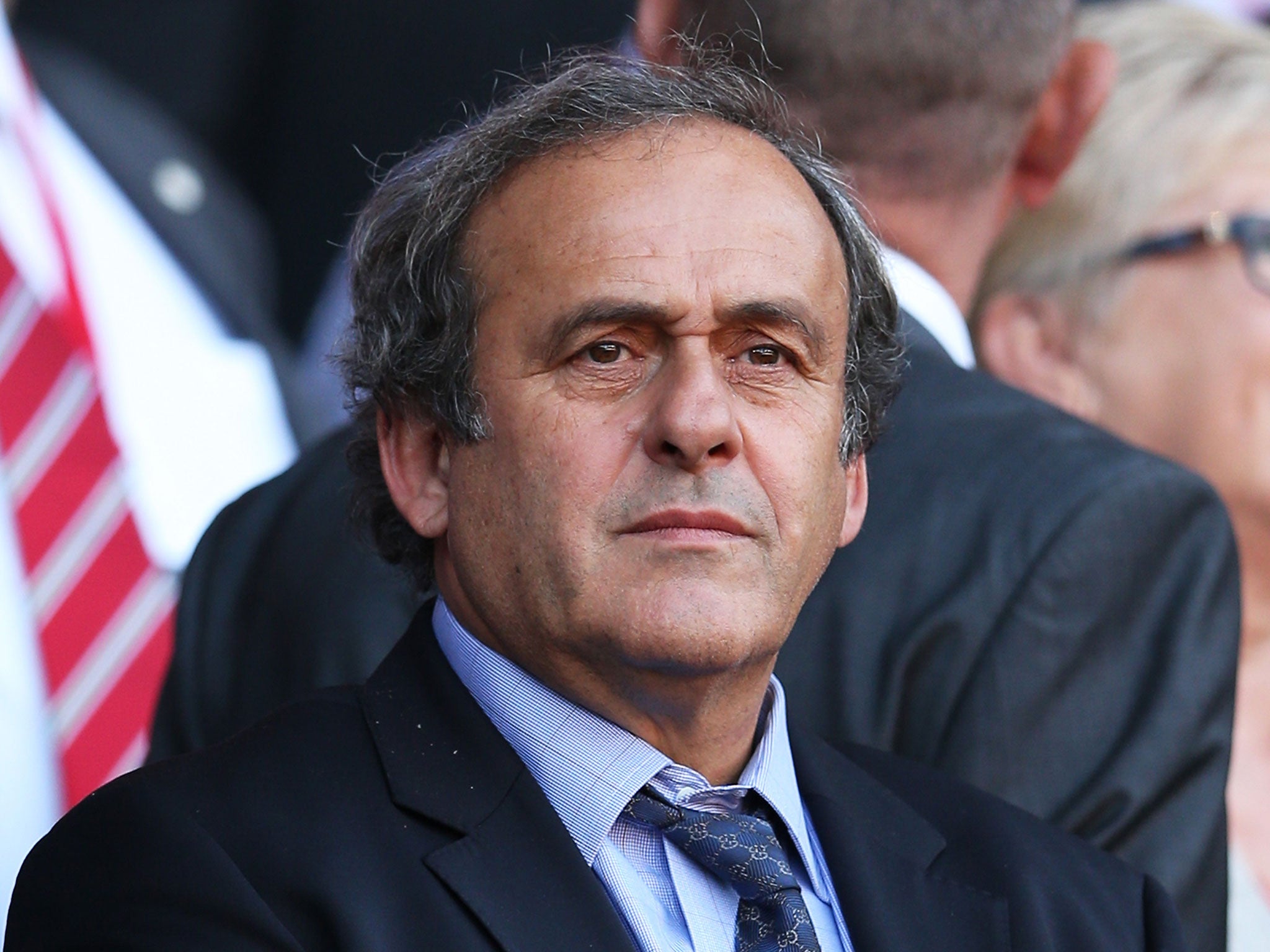Michel Platini appeal against eight-year ban to be heard by Fifa
The Frenchman was banned in December over a "disloyal payment" of £1.3million made to him in 2011 which had been signed off by then FIFA president Sepp Blatter.

Michel Platini's appeal against his eight-year ban from all football-related activity will be heard on Monday.
Platini was banned in December over a "disloyal payment" of £1.3million made to him in 2011 which had been signed off by then FIFA president Sepp Blatter.
Blatter is also appealing against his own eight-year ban, with his case to be heard on Tuesday.
If Platini fails to have the sanction overturned by FIFA's appeals committee, it is likely he would take his fight to the Court of Arbitration for Sport (CAS) with Blatter poised to do the same.
UEFA stated last month that it will not hold an election for its presidency until Platini's appeals process has been exhausted. The FIFA appeals committee, which is chaired by Larry Mussenden, the president of the Bermuda Football Association, has the power to reduce, increase or overturn the ban imposed in December.
As well as the ban, Platini was fined 80,000 Swiss francs (around £54,000) by the adjudicatory chamber of FIFA's ethics committee after being found guilty of breaching the world governing body's code of ethics.
The ethics committee's investigatory chamber has also confirmed that it is appealing against the sanctions imposed on Platini and Blatter on the grounds that they are too lenient.
The charges found proven included offering and accepting gifts, conflict of interest, and violating their fiduciary duty to FIFA.
Both Platini and Blatter said the payment was made following a verbal agreement between the pair when the Frenchman worked for Blatter from 1998 to 2002, though it was not paid until nine years later.
That explanation was rejected as "not convincing" by the ethics committee, though it did add the evidence had not been sufficient to secure charges of corruption.
PA
Subscribe to Independent Premium to bookmark this article
Want to bookmark your favourite articles and stories to read or reference later? Start your Independent Premium subscription today.

Join our commenting forum
Join thought-provoking conversations, follow other Independent readers and see their replies